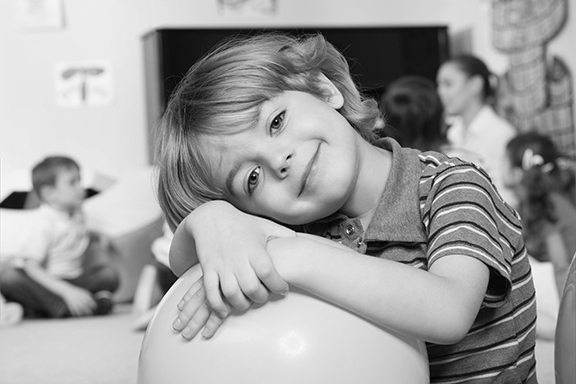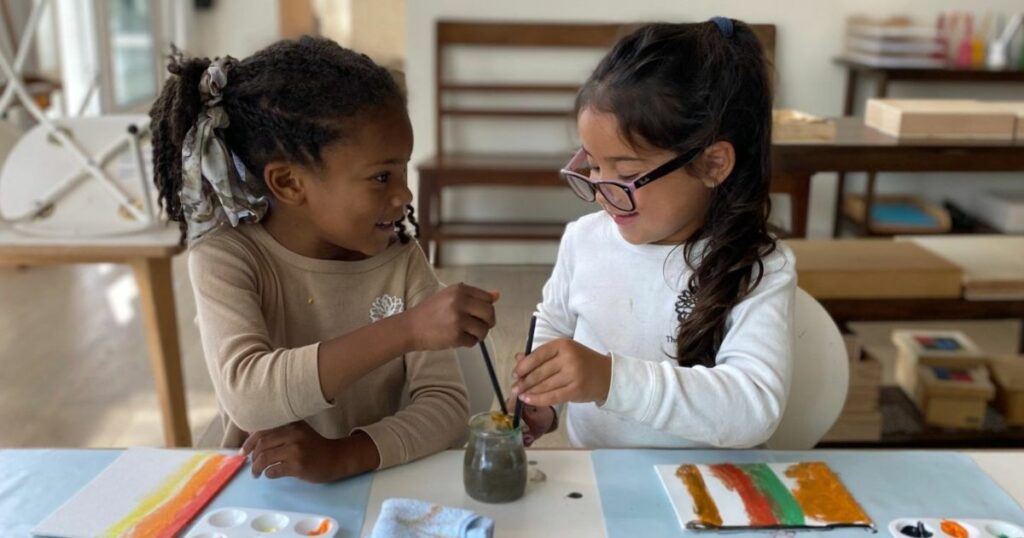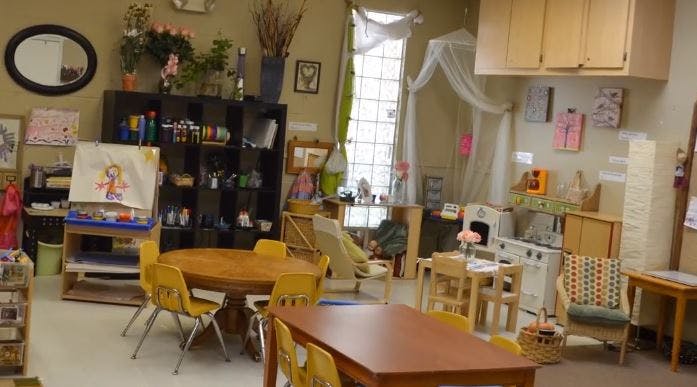The Montessori Method and Present-Moment Awareness
Dr. Maria Montessori’s educational philosophy emphasizes the value of treating each child as an individual, a principle that is reflected in the design of Montessori classrooms. These learning spaces are expertly crafted to encourage children to engage with their surroundings at their own pace, thus creating a unique and personalized learning environment. Additionally, the integration of mindfulness practices, which are rooted in ancient tradition, further emphasizes the importance of individual experience and the present moment. By combining these two approaches, children are immersed in an enriched environment that fosters not only academic concepts but also the development of their own minds and emotions.
Furthermore, mindfulness practice involves present-moment awareness, which means being fully engaged and attentive in the current moment. This practice cultivates clarity of thought and emotional balance, freeing individuals from dwelling on the past or worrying about the future. As the world becomes more fast-paced, the Montessori Method and present-moment awareness equip students with the tools they need to navigate it. Students learn to approach challenges with resilience, creativity, and a grounded sense of self. By fostering intellectual rigor and emotional intelligence, children are not only prepared for academic success but also for a fulfilling, balanced life.
Sensorial Exploration Meets Mindful Observation
Within the Montessori educational philosophy, children engage with their surroundings through the use of sensorial materials, such as the pink tower or geometric solids. These materials serve not only as tools for academic learning but also as a means for practicing mindfulness. By observing their reactions, feelings, and thoughts during these activities, children learn to be present and connected to their experiences. This combination of Montessori materials and mindfulness practice leads to both cognitive and emotional growth.
Mindful observation involves being aware of one’s surroundings and internal states without judgment and staying anchored in the present moment. This approach is not limited to the classroom but extends to daily life. People who practice sensorial exploration and mindful observation have been shown to experience better emotional regulation, heightened awareness, and a deeper appreciation for life’s subtleties.
This philosophy empowers individuals to live fully by understanding the relationship between their internal landscape and the external world. By cultivating mindfulness and engaging with the world through the use of sensorial materials, children and adults alike can develop a greater sense of self-awareness, empathy, and connection to the world around them. Ultimately, this approach can lead to a more fulfilling and meaningful life.
Emotional Regulation in the Prepared Environment
The development of emotional regulation skills is an essential aspect of successful personal and social interactions. In Montessori environments, this skill is naturally encouraged through various techniques, including mindfulness practices such as deep breathing and body scans. These techniques help children become more aware of their emotions, enabling them to navigate complex feelings and fostering empathy with their peers. Moreover, the Montessori environment is carefully organized and equipped to promote independent learning, aiding in overall development.
While cognitive and physical development are often prioritized, emotional regulation is equally important. Emotional regulation entails managing emotions when they arise and expressing them appropriately. It means being able to handle strong emotions, control mood swings, and react to situations in a composed manner. The emotional regulation skills that children learn in a Montessori environment extend beyond the classroom and are foundational for facing challenges, building healthy relationships, and pursuing personal and professional goals later in life.
Montessori environments not only teach children about the world around them but also equip them with the tools to understand and navigate their own emotions. By fostering emotional regulation skills, children are better able to manage their emotions and respond to challenges with resilience and composure. In turn, this helps to create a more peaceful and harmonious classroom environment, where children can thrive both academically and socially.
Concentration and Mindful Meditation: Parallel Paths to Presence
Montessori education places a great emphasis on encouraging children to develop deep concentration skills. Dr. Maria Montessori, the founder of the Montessori method, recognized that children who are given the freedom to choose their own tasks tend to become fully engrossed in them. This state of flow is similar to the mindfulness meditation technique used to achieve deep presence. By incorporating basic meditation practices into the Montessori curriculum, educators can further improve their students’ ability to concentrate and delve deeper into their chosen work.
Concentration and mindful meditation, while different practices, complement each other beautifully, especially in the Montessori education context. Both techniques are pathways to increased awareness, focus, and presence. Concentration is recognized in Montessori education as a child’s complete involvement in an activity. It is an essential aspect of the Montessori approach, which emphasizes hands-on learning and exploration. Through concentration, children develop their problem-solving skills, creativity, and critical thinking abilities.
By combining mindful practices with Montessori education, children can benefit greatly. Mindful meditation is a technique that involves paying attention to the present moment without judgment. It helps children develop their ability to focus, reduce stress and anxiety, and improve their emotional regulation. Despite the fact that concentration in Montessori settings and mindful meditation may come from different philosophies, their final objectives beautifully intersect in promoting presence, awareness, and tranquility.
Educators who recognize the power of both practices can create an environment where children are not only academically empowered but also emotionally and mentally nurtured. By teaching children how to concentrate and practice mindfulness, we can help them develop the skills they need to be successful in school and in life. With the right tools and guidance, children can learn to be more present, focused, and self-aware, which will serve them well throughout their lives.
Conclusion: A Harmonious Integration
In the current education system, it is imperative to equip our children with a well-rounded set of skills that extend beyond academics. While traditional education focuses primarily on cognitive development, it is equally important to teach children how to interact with the world around them in a mindful and empathetic way. The Montessori approach to education recognizes this need and incorporates mindfulness practices into the classroom environment.
This approach to education is not a deviation from Dr. Montessori’s original vision but rather an enhancement of it. By instilling values such as being present, aware, and empathetic in our children, we are not just fostering their learning but also grooming future global citizens with a heightened sense of consciousness. These values are crucial for children to develop a deep understanding of themselves and their place in the world. By promoting mindfulness and empathy in the classroom, children learn to build stronger relationships with others and navigate the complexities of the world around them with greater ease.
Overall, the Montessori approach to education recognizes that academic success is not the only measure of a child’s growth and development. Instead, it places equal importance on the social and emotional aspects of learning, creating a more well-rounded educational experience that prepares children for a lifetime of success and fulfillment.






